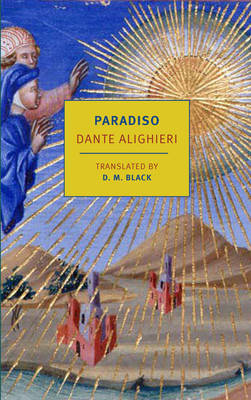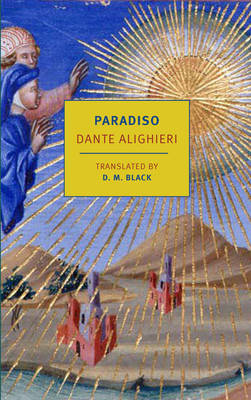
- Afhalen na 1 uur in een winkel met voorraad
- Gratis thuislevering in België vanaf € 30
- Ruim aanbod met 7 miljoen producten
- Afhalen na 1 uur in een winkel met voorraad
- Gratis thuislevering in België vanaf € 30
- Ruim aanbod met 7 miljoen producten
Zoeken
Omschrijving
A new translation of the final part of Dante's Divine Comedy by a poet and psychoanalyst praised for his previous translation of Dante's Purgatorio. Paradiso brings The Divine Comedy to a virtuosic and visionary end. This final leg of Dante's journey from Hell into the presence of God is for many the most memorable stretch of the poem, a musical and mystical interveaving of mind and heart and transported sense that is unlike anything else in world literature. This new English rendering of Paradiso by the poet D.M. Black, whose Purgatorio won the 2022 National Translation Award in Poetry, re-creates this masterpiece with fidelity and clarity.
Cleansed of sin after his grueling trek up Mount Purgatory, Dante's pilgrim sets out to explore the celestial spheres under the guidance of his childhood sweetheart and lifelong muse, Beatrice. As he moves from the moon to the planets to the Primum Mobile and beyond, encountering emperors, heroes, saints, members of his family, and various other redeemed sinners, he contemplates optics, angels, free will, mercy, and love. The transcendent actuality of bliss is ever more palpable as the poem unfolds, and yet in the background remains the carnage of history and the deforming bitterness of the human heart, not to be denied--Dante is nothing if not a realist--even in the supreme light of "the Love that moves the sun and all the stars."
Written at a time of great political turmoil in Italy and great personal anxiety in Dante's life, Paradiso wrestles with many questions that have echoes in our own disturbing times. It is a book about the shape of the universe and how to find one's place within it, composed with inventive daring and linguistic ingenuity as Dante stretches language to its very limits, striving to make vivid and tangible the ineffable and sublime.
Cleansed of sin after his grueling trek up Mount Purgatory, Dante's pilgrim sets out to explore the celestial spheres under the guidance of his childhood sweetheart and lifelong muse, Beatrice. As he moves from the moon to the planets to the Primum Mobile and beyond, encountering emperors, heroes, saints, members of his family, and various other redeemed sinners, he contemplates optics, angels, free will, mercy, and love. The transcendent actuality of bliss is ever more palpable as the poem unfolds, and yet in the background remains the carnage of history and the deforming bitterness of the human heart, not to be denied--Dante is nothing if not a realist--even in the supreme light of "the Love that moves the sun and all the stars."
Written at a time of great political turmoil in Italy and great personal anxiety in Dante's life, Paradiso wrestles with many questions that have echoes in our own disturbing times. It is a book about the shape of the universe and how to find one's place within it, composed with inventive daring and linguistic ingenuity as Dante stretches language to its very limits, striving to make vivid and tangible the ineffable and sublime.
Specificaties
Betrokkenen
- Auteur(s):
- Vertaler(s):
- Uitgeverij:
Inhoud
- Aantal bladzijden:
- 496
- Taal:
- Engels
Eigenschappen
- Productcode (EAN):
- 9781681379432
- Verschijningsdatum:
- 12/08/2025
- Uitvoering:
- Paperback
- Formaat:
- Trade paperback (VS)
- Afmetingen:
- 127 mm x 202 mm
- Gewicht:
- 367 g

Alleen bij Standaard Boekhandel
+ 58 punten op je klantenkaart van Standaard Boekhandel
Beoordelingen
We publiceren alleen reviews die voldoen aan de voorwaarden voor reviews. Bekijk onze voorwaarden voor reviews.











